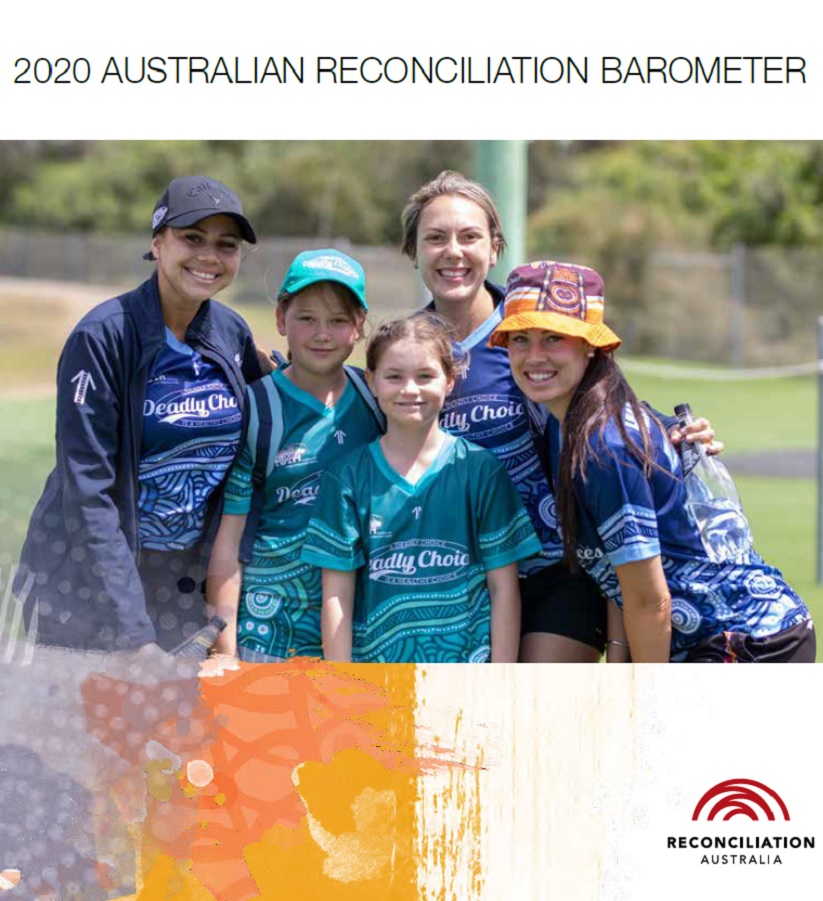Summary
The Australian Reconciliation Barometer (ARB) is a national research study that looks at the relationship between Aboriginal and Torres Strait Islander peoples and other Australians, and how perceptions affect progress towards reconciliation.
The ARB measures attitudes towards reconciliation, using the five dimensions of reconciliation—race relations, equality and equity, unity, institutional integrirty, and historical acceptance—to inform data collection and analysis.
The 2020 ARB surveyed a national sample of 495 Aboriginal and Torres Strait Islander people and 1988 general community members, across all states and territories.
Both the general community sample and Aboriginal and Torres Strait Islander sample are weighted to be representative in terms of age group, gender and location (state and territory populations), as per Australian Bureau of Statistics 2016 Census data.
The 2020 report shows that:
- As in previous years, almost all Australians–Aboriginal and Torres Strait Islander people and general community members–believe the relationship between each other is important
- The desire to become a more reconciled nation has increased, with more Australians knowing what they can do to help
- Experiences of racial prejudice by Aboriginal and Torres Strait Islander have increased in the last year. The feeling that media portrayal of Aboriginal and Torres Strait Islander people is usually negative has continued to be high.




